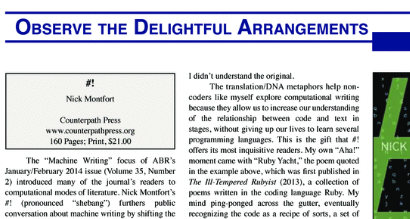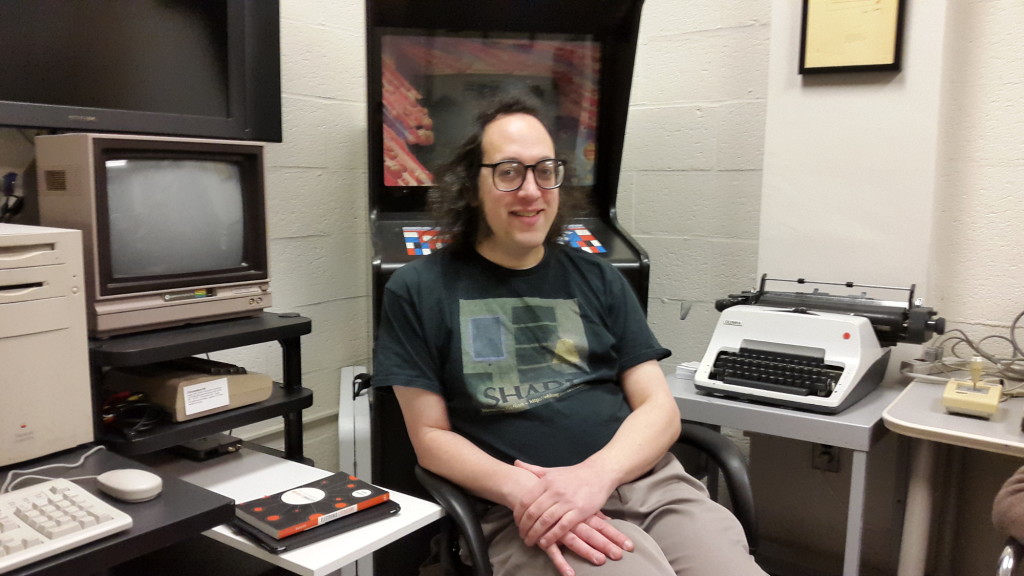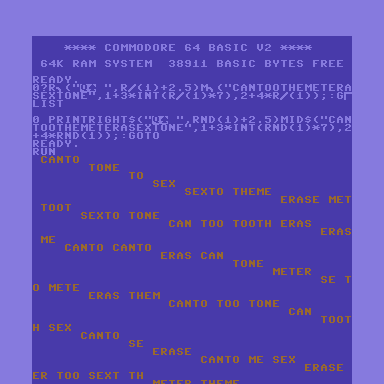#! Reviewed in ABR
Steven Wingate’s review of my book #! (pronouonced “Shebang,” Counterpath Press, 2014) appears in the current American Book Review and seems to be the first review in print.
I was very pleased to read it. Wingate discusses how the presentation of code provided a hook for understanding what programs do, much as bilingual editions allow a reader to learn more (at least a bit more) about a different language by skipping back and forth between recto and verso. An important goal of mine was to offer more access to computing and to show that code can be concise and open. I aimed to do this even as I wrore rather obscure and difficult programs, such as the ones in Perl, but certainly when writing Ruby and Python, the languages Wingate finds most pleasing.







